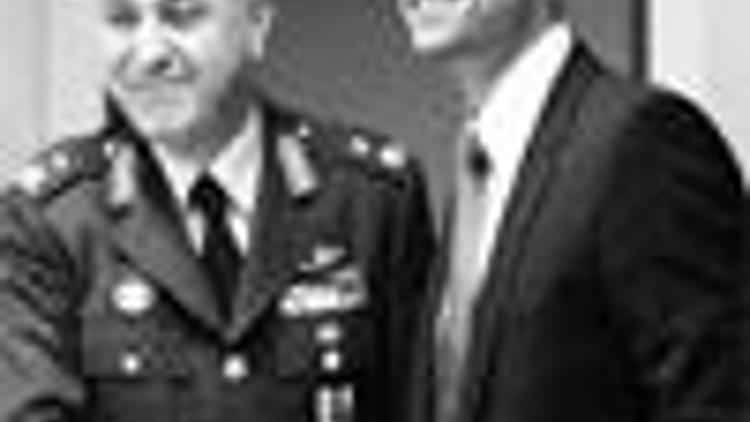Turkey eyes NATO headquarters reform for high-level representation
Güncelleme Tarihi:

BRUSSELS - To take a more prominent position within the alliance, Turkey is keeping an eye on the long-awaited NATO headquarters reform package led by the current secretary general and reflected in April's summit documents.
This is not an easy process for Turkey and the fulfillment of its expectations may take a long time, as discussions are still ongoing on how to improve decision-making in NATO, to provide a more equitable representation for all the allies and to increase the executive authority of the secretary general.
“There is an effort under way led by the current secretary general and I know the next secretary general shares this desire to reform the headquarters and that is reflected in public documents released in Strasbourg and Kiel,” NATO spokesman James Appathurai told Turkish journalists at the alliance’s headquarters in Brussels late Wednesday.
“That [reform] includes more executive authority to the secretary general, to move money and move people within the structure without having to get each and every time consensus from all 28 ally members… But these are all issues that need to be discussed and decided among the 28,” he said.
The number of NATO members rose to 28 with the participation of Croatia and Albania at last month’s summit marking the organization’s 60th year. The reform package will be discussed at NATO’s ministerial meeting set for June, said Appathurai. “What the results will be I cannot predict,” he said.
Turkey, one of the most significant contributors to NATO’s activities and operations worldwide, has been a member of the alliance since 1952, but has not undertaken a prominent position within the alliance since 1979. The last time Turkey held high-rank positions was between 1968 and 1971 as acting secretary general, and between 1973 and 1979 as deputy secretary-general in charge of scientific affairs.
The Turkish government openly expressed opposition to Denmark’s former Prime Minister Anders Fogh Rasmussen running for the chief NATO post due to a number of reasons, including his failure to handle the 2006 crisis over the publication of cartoons depicting the Prophet Mohammed and Denmark’s refusal to revoke the broadcasting license of Roj TV, which Turkey says is a mouthpiece for the outlawed Kurdistan Workers’ Party or PKK.
But the crisis was settled, as some reports suggested, after Turkey was convinced it would obtain a senior position within NATO in return for its acceptance of the Danish premier. But the appointment of Danish Ambassador to Ankara Jesper Vahr as top aide to Rasmussen led the way for the speculation that the senior position was not granted to someone from Turkey but to the Danish ambassador currently serving in Ankara and that the country was again left in the cold.
Officials here, however, said the appointment of private office was the secretary general’s personal choice and it was a tradition in NATO to select the director of the private office from the secretary general’s own nationality. Officials said that current cabinet director to Secretary General Jaap de Hoop Scheffer of the Netherlands was also Dutch.
‘Rules will be followed’
Before the tension over the appointment of a new secretary general for the alliance, Turkey had demonstrated reservations on the French decision to return to the military wing of NATO linked to France’s opposition to Turkish membership in the European Union. In reply to a question on how such come-and-go on the part of Turkey was perceived within NATO, the spokesman said: “There is no doubt that Turkey is contributing an enormous amount to NATO politically, militarily and financially as well.”
He added: “Everything is done here by negotiation, by consensus. Everybody has the right and ability to defend their positions but we don’t operate in NATO on the principle of veto, we are operating on the principle of moving toward consensus. Turkey, like every other nation, plays the game by the rules and the rules will be followed for any changes that are made.”

